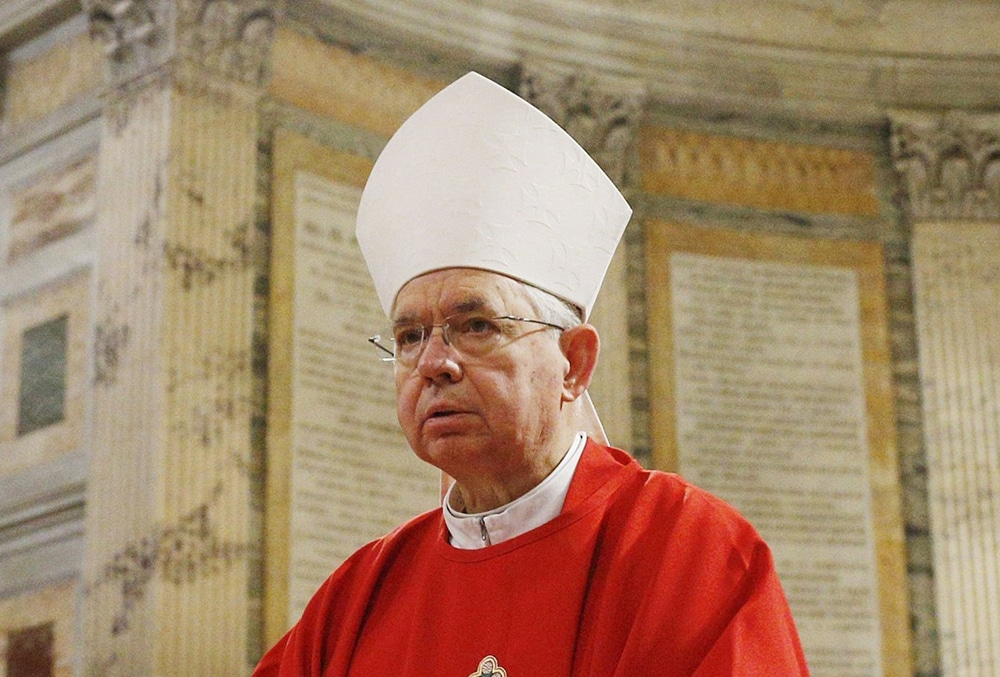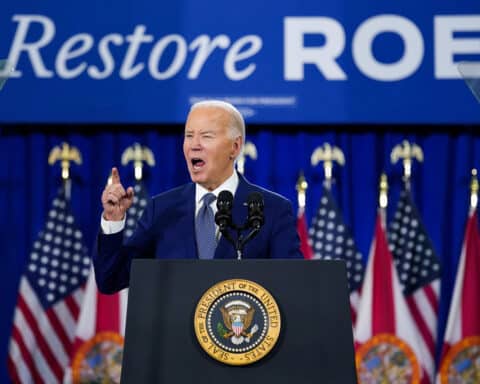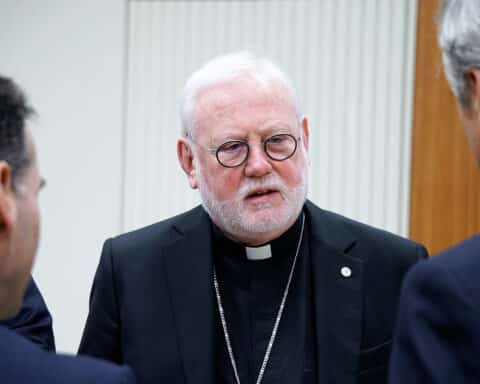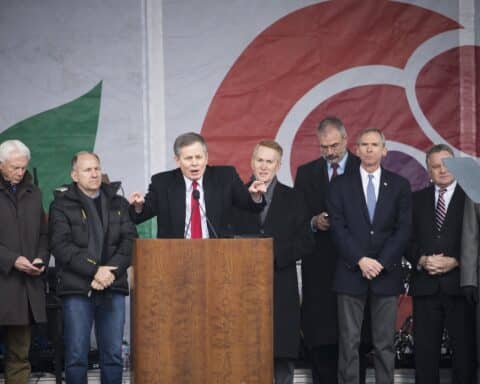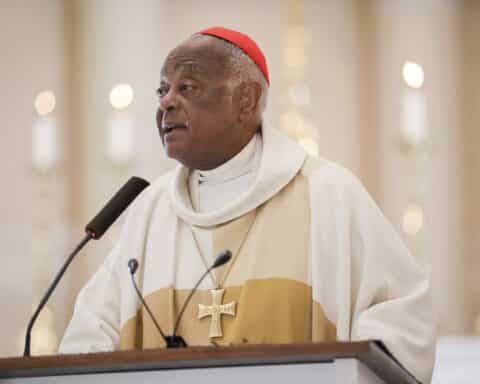As Catholic Christians, we are called to preach the Gospel of Jesus Christ at all times to all people. We are called to speak this truth in season and out, when it’s simple and when it’s complicated, no matter the cost. This is integral to our great commission, our charge given by Christ himself, and it’s no small undertaking. Nor is it easy.
The statement issued by Archbishop José H. Gomez, the president of the U.S. Conference of Catholic Bishops, on the event of the inauguration of President Joe Biden, the second Catholic to occupy the Oval Office, was in response to this calling. Beginning and ending with an assurance of prayers, the statement set a charitable, measured and just tone for what will necessarily be a complex relationship between a Catholic political leader who publicly supports and advances a staunch and unapologetic abortion-rights agenda (among other problematic issues mentioned by Archbishop Gomez in his statement) and the shepherds entrusted with his care. This Editorial Board strongly supports both the statement’s tone and content.
Many institutions and individuals, both outside of and, more regrettably, within the Church, however, do not. The Washington Post accused Archbishop Gomez of assailing Biden over abortion as the 46th president was sworn in. Writing in the National Catholic Reporter, Michael Sean Winters called the statement “churlish” and said it amounted to the bishops throwing “cold water” on “the most Catholic inauguration in history.” More surprisingly, in a series of tweets, Cardinal Blase Cupich, archbishop of Chicago, called the statement “ill-considered” and “a surprise.” Such a public admonition serves only to divide further a Church that can ill afford further division, and goes against the synodality and collegiality that ideally would exist among the hierarchy.
Some have pitted the statements of Pope Francis — who offered more general congratulations and assurances of prayers — and Gomez against each other, the continuation of a damaging and inaccurate narrative that the U.S. episcopacy is somehow at odds with the Holy See. The statements, though, are complementary rather than contradictory, with Archbishop Gomez appropriately directing his gaze to the local and the concrete. It’s the principle of subsidiarity in action and one of the reasons why episcopal conferences exist in the first place.
To understand and appreciate Archbishop Gomez’s approach, it is necessary to read the statement in its entirety. After assuring President Biden that he and his family are in his prayers, Archbishop Gomez explained that the bishops “are not partisan players in our nation’s politics.” Instead, he wrote, “when we speak on issues in American public life, we try to guide consciences, and we offer principles. These principles are rooted in the Gospel of Jesus Christ and the social teachings of his Church.” He listed the issues found in the bishops’ document “Forming Consciences for Faithful Citizenship,” with abortion — what the document calls the “preeminent issue” — first among them.
Adopting a posture of outreach, Archbishop Gomez went on to say that he looks forward to working with Biden, acknowledging that the president’s Catholicism will set his administration apart from others in the past. “In a time of growing and aggressive secularism in American culture, when religious believers face many challenges, it will be refreshing to engage with a president who clearly understands, in a deep and personal way, the importance of religious faith and institutions,” Archbishop Gomez said. “Mr. Biden’s piety and personal story, his moving witness to how his faith has brought him solace in times of darkness and tragedy, his longstanding commitment to the Gospel’s priority for the poor — all of this I find hopeful and inspiring.”
In the manner of a true pastor, though, Archbishop Gomez was compelled to address areas of divergence as well as convergence. He added: “I must point out that our new president has pledged to pursue certain policies that would advance moral evils and threaten human life and dignity, most seriously in the areas of abortion, contraception, marriage, and gender. Of deep concern is the liberty of the Church and the freedom of believers to live according to their consciences.”
But rather than leaving it there, Archbishop Gomez offered a productive way forward that aligns with Biden’s vision and priorities. “My hope is that we can begin a dialogue to address the complicated cultural and economic factors that are driving abortion and discouraging families,” Archbishop Gomez said. “My hope, too, is that we can work together to finally put in place a coherent family policy in this country, one that acknowledges the crucial importance of strong marriages and parenting to the well-being of children and the stability of communities.” Rather than berating the new president, Archbishop Gomez sought common ground in shared values.
Some have said that Inauguration Day was not the moment for a statement heavy on issues. But as of Jan. 20, our nation has a practicing Catholic as president. President Biden attended Mass and presumably received the Eucharist before his swearing in. During his inaugural address, he quoted St. Augustine. A photo of Biden greeting Pope Francis now has a prominent place behind the Resolute Desk — the same desk at which he is expected to expand access and funding to abortion in coming days.
It is precisely because of President Biden’s Catholicism that Archbishop Gomez was obligated to preach the Gospel — the truth of Jesus Christ that President Biden professes to hold dear — even when it was complicated, no matter the cost. The future of the Church in America, especially during the next four years, depends on him doing just that.
Our Sunday Visitor Editorial Board: Gretchen R. Crowe, Scott P. Richert, Scott Warden, York Young

